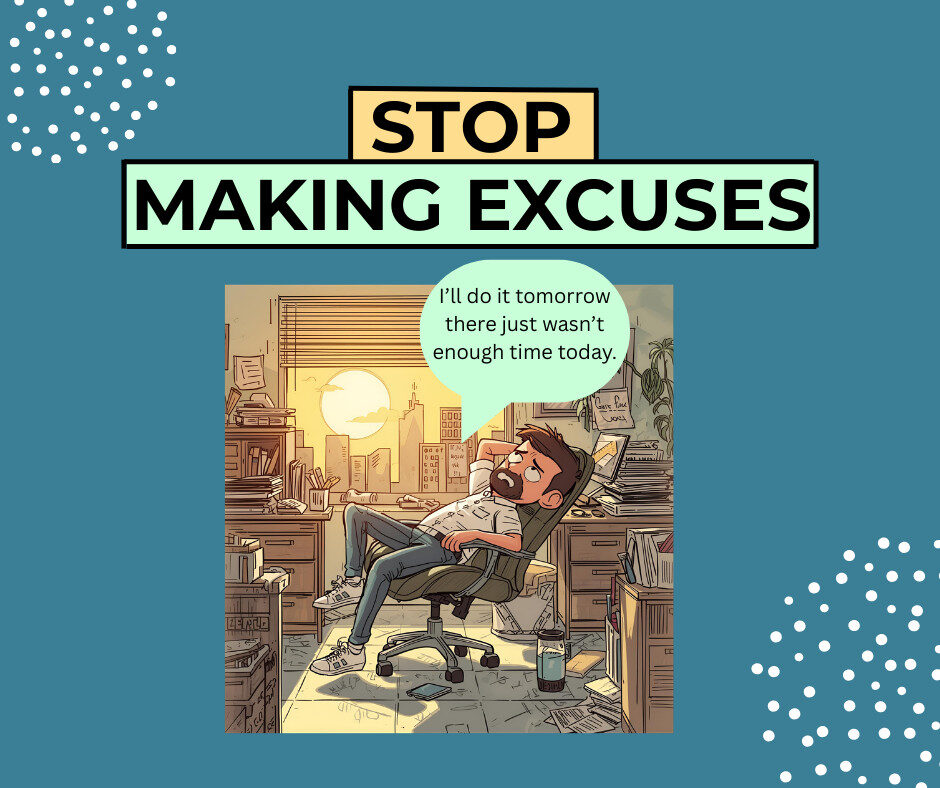
Are you practicing “MAM.” not Ma’am? The reason I titled the post as such is because A. I didn’t want you to think that I didn’t know how to spell Ma’am, and B. I wanted to pique your interest in what I am about to share with you, which is mindfulness around money or “MAM.”
I’m going to start by asking you to do a bit of self-reflection and be brutally honest with yourself about whether you are mindful of your money and where it is going? Now, I am going to be brutally honest with you and admit that until very recently I was found lacking in this department. I was practicing the new age philosophy of Y.O.L.O. and I was spending the majority of what I was making on right now, without looking too far ahead into the future.
The philosophy of You Only Live Once is true, but very few people living by this philosophy take into account the fact that you might still live a really long life. When people aren’t mindful of their money and their habits around money, they could be setting themselves up for a long and less fulfilling life. Sure, money isn’t everything and living in the moment is fun and can be incredibly rewarding experientially, but there is a huge downside if you aren’t at least being mindful of your future.
So, with that being said, let’s dive into why mindfulness around money is so important. First and foremost, money is a great tool that when used correctly can help us to live a life of great fulfillment and great pleasure. When I say pleasure, I mean it in the least Hedonistic way possible for example it has become my great pleasure to be able to give small amounts of money to those in need and to those who have shown me a kindness in a way that was meaningful to me. In the more Hedonistic sense of pleasure what I am talking about is the ability to have nice things that make us feel good and to be able to relax and take vacations and weekend trips that those who are not mindful of their money can’t afford.
Today is Memorial Day 2024 and I really didn’t have anything planned for the day so after my girlfriend left for work, I gathered up a few pairs of shoes and couple of clothing items, plus a few bottles of water and I headed to Bricktown in OKC to see if I could find some homeless people in need. The first person I asked if they needed some water or clothing wasn’t interested, so I move on. I then came across one of the homeless guys that I used to run around with down there and he accepted some water, and he said one of our other friends would be back shortly, so I told him I was going to go look for some others in need and I would be back shortly. I was able to find one you lady in need and gave her some clothing and water and then returned to the group where I gave away the rest of the water and some shoes.
You’re probably wondering why I shared that with you and the simple answer is that my mindfulness around money is what created the surplus of those items that I could give away to someone less fortunate than myself and I still have plenty and get to come home to my oasis. I call it my oasis because being out there with them reminded me of all of the things we often take for granted i.e. shelter from the elements, privacy in the form of a home, a bathroom that we can use for bathing and other things. Even the poorest people in houses still have it better than those on the street who have no clue for sure where their next meal is going to come from or when it is going to come.
Mindfulness around money is a vitally important topic that often gets overlooked, especially in the mainstream. It’s rarely talked about in many households and if it’s taught in schools, it’s taught quite poorly. So why isn’t money talked about in more depth and with more clarity so that people can truly understand what it means to be wealthy and what it means to give back to society? Honestly, I don’t know the answer to this question, but what I do know about money and being mindful of it I am going to share with you now.
Number one, if you aren’t being mindful of your money then you are never going to have enough of it. What do I mean by that? Well, to put it simply, if all you do is make money and spend, spend, spend like there is no tomorrow you aren’t going to have the money when you really need it. If you are being mindful of your money, then you are going to respect it and the fact that you have it. This shouldn’t come from a scarcity mindset either. The mindset should be that I have money and I am incredibly grateful and thankful for it and I am going to make sure that each dollar and each cent counts.
Number two, being mindful of your money and how you spend it and the conversations you have with your children about money are crucial to their well-being. Whether it was said to you or maybe you just heard someone say it, things like money doesn’t grow on trees and do you think I am made of money, these statements come from a place of scarcity and can be very impactful to the psyche of young minds especially. Instead of making people feel like there is a lack of money available, start by asking them and maybe even yourself, how could we afford this? What I mean by that is, teach your children to look for a solution to the challenge of raising the money for what they want, instead of just shooting them down and making them feel awful about wanting something. The value of money can be taught in a positive way without acting like it is a sin or a crime to want something that wasn’t planned for.
Number three, being mindful of your money is a great way to curb any habits of overconsumption that you may have. Every single day millions of people overconsume and end up with leftovers and products that they won’t use or even think about two months after they purchase it. They wonder where all of their money is, but if they would take a second to look around them and see the money in the back of the closet that they wore once, or if they would be mindful of the phone, and or car that they recently upgraded to keep up with or get ahead of the next person, they would think twice before buying. We all consume things every day, but as long as we are mindful of the impact that it has on our money and our well-being it is ok. Think about your purchases and have meaningful conversations about your purchases with your children and teach them it’s ok to want and to have nice things, but be mindful of the impact.
Number four, being mindful of your money is one of the best ways to have a great impact on not only your own well-being but that of others as well. Like I shared earlier, me being mindful of my money has helped me to be able to give more and to really impact those in need. It’s easy to overlook the impact that our money can have in our lives and the lives of others. Many of you may be living paycheck to paycheck and struggling to keep the lights on and food on the table, but it doesn’t have to be that way if you will be mindful of your money and where it is going. The more mindful you are of your money the more of it you will have.
Number five, being mindful of your money will help you to have a better future if you will put some away for the future and for the what if’s. I have been notoriously guilty of this throughout my life and it’s one of the reasons I became homeless in the first place. I wasn’t thinking about my future for one and I wasn’t thinking about the what ifs, like what if I get divorced. I had no plan, and I was just barely scraping by as it was, so how could I save for the future and how could I be prepared for what eventually was my first and only divorce? Well, if I had been more mindful around money I certainly wouldn’t have been overconsuming and I would have at least been saving a little bit of money in some way.
Number six, being mindful of your money will bring you peace of mind, joy, and happiness like no other. One of the number one causes of divorce and relationships in general ending is money fights. Why do happy couples end up mad and bitter with each other, usually it stems of issues around money. If I could give couples one piece of advice it would be to have more conversations about money and find out what each of you knows about money and its value. When I say value of money, no I’m not talking about a dollar being worth 100 pennies, or the conversion rate of a dollar to a euro or anything like that. What I am talking about though, is that it is really important to know how each of you views money and its potential?
Money that is just sitting in the bank or under the mattress is losing its value very quickly, especially these days. Money that is invested wisely and with careful consideration can grow given enough time with a powerful tool called compound interest. It is rumored that Albert Einstein once called compounding the Eighth Wonder of the World. It would be good to know early on in your relationship how each of you handles money, because this will be a huge indicator of how successful your relationship will be. If both of you are heavy spenders and don’t take the future into account at all, God or whatever you believe in help you. If one is a spender and one is a saver, surprisingly this can actually be a pretty beneficial match, but we will look more into that later. If you are both savers, this could also be a pretty good match, but learn to spend a little bit on some good memories so you don’t wind up old with a lot of money, but nothing meaningful to show for it other than a number on a balance sheet.
Number seven, and I promise I am bringing it to a close because I want you to get out there start putting these practices to work, being mindful of your money should be a part of your legacy. Maybe you didn’t grow up in a household where money was talked about and maybe your family didn’t or doesn’t really have anything that they are going to leave you when they are gone. If you are mindful of your money and if you start having meaningful conversations about money you have the opportunity to be the first in your family to be able to leave a lasting legacy to your children and future generations of your bloodline. Maybe you won’t leave them so much money that it will ruin their life, but enough that they have a good start. More importantly though is going to be the conversations that you have with your children about money and its importance in life and society.
Money in and of itself is not inherently evil, nor is having a lot of it. People who are wealthy or rich are not bad people and to be quite honest they employ most of the population. How you view money and people who have it, is the reason why you have it, or you don’t. Plain and simple if you think money and or people who have it are evil then you won’t have any because you think it’s bad. Conversely, if you view money as a tool and a means to an end then you probably have plenty of it and you have it because you know it’s value and its place in society and your life. Many people don’t have money for many reasons, but I would say one of the main reasons is because they are not mindful of it and as quick as it comes it goes without much thought. Being more mindful of your money will keep more of it in your pocket and it will allow you to invest it and watch it grow.
As always, thank you for staying until the end and get out there and plant some seeds of mindfulness around your money and watch as it starts to grow and flourish around you.
-Founder Magbunga.com

To download a free copy of the affirmations shown above, click on the link below so you can print them out and put them on your wall or simply view them on your digital device any time.







